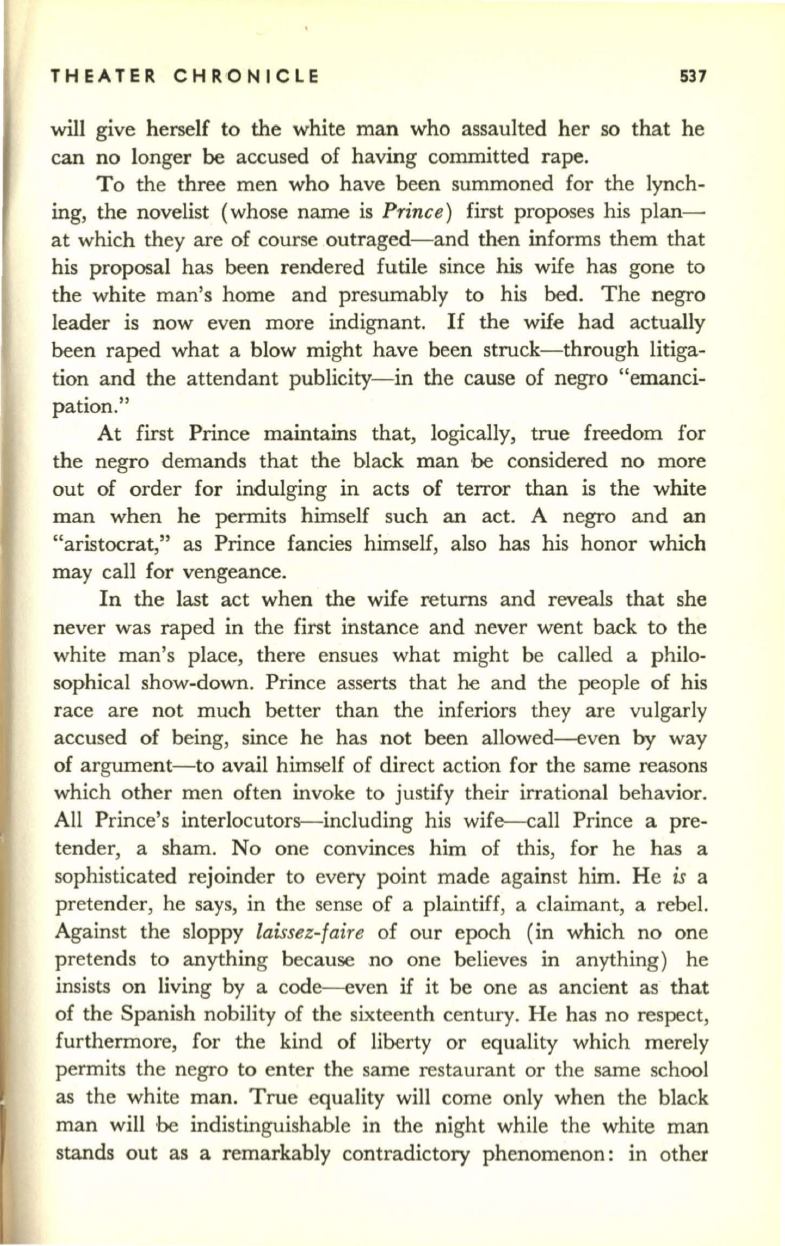
THEATER
CHR 'ONICLE
537
will give herself to the white man who assaulted her so that he
can no longer be accused of having committed rape.
To the three men who have been summoned for the lynch–
ing, the novelist (whose name is
Prince)
first proposes his plan–
at which they are of course outraged-and then informs them that
his proposal has been rendered futile since
his
wife has gone to
the white man's home and presumably to his bed. The negro
leader is now even more indignant.
If
the wife had actually
been raped what a blow might have been struck-through litiga–
tion and the attendant publicity-in the cause of negro "emanci–
pation."
At first Prince maintains that, logically, true freedom for
the negro demands that the black man -be considered no more
out of order for indulging in acts of terror than is the white
man when he permits himself such an act. A negro and an
"aristocrat," as Prince fancies himself, also has his honor which
may call for vengeance.
In the last act when the wife returns and reveals that she
never was raped in the first instance and never went back to the
white man's place, there ensues what might be called a philo–
sophical show-down. Prince asserts that he and the people of his
race are not much better than the inferiors they are vulgarly
accused of being, since he has not been allowed--even
by
way
of argument-to avail himself of direct action for the same reasons
which other men often invoke to justify their irrational behavior.
All Prince's interlocutors-including his wife-call Prince a pre–
tender, a sham. No one convinces him of this, for he has a
sophisticated rejoinder to every point made against him. He
is
a
pretender, he says, in the sense of a plaintiff, a claimant, a rebel.
Against the sloppy
laissez-faire
of our epoch (in which no one
pretends to anything because no one believes in anything) he
insists on living by a code--even if it be one as ancient as that
of the Spanish nobility of the sixteenth century. He has no respect,
furthermore, for the kind of liberty or equality which merely
permits the negro to enter the same restaurant or the same school
as the white man. True equality will come only when the black
man will -be indistinguishable in the night while the white man
stands out as a remarkably contradictory phenomenon: in other


